On James Rickards’ “The New Great Depression” And The Greatest Lesson Of 2020 With Andy Tanner
Podcast: Play in new window | Download
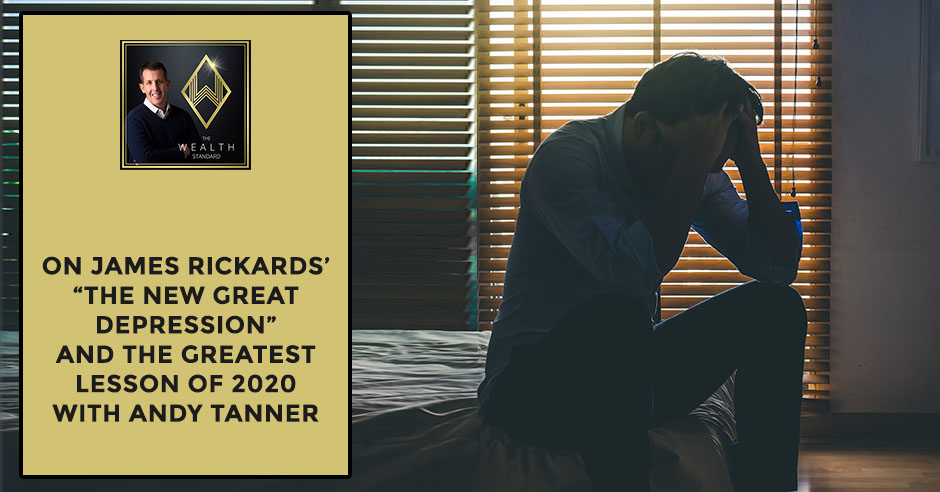
You may ultimately agree or disagree with it, but James Rickards’ The New Great Depression is certainly one of those books that have something significant you can take away from whichever way you go. Coincidentally, it might also be the greatest lesson from 2020 when it comes to business and investing. Whether last year was a good one or not for you, it certainly taught all of us how the environment can affect us and how we can become better prepared to navigate challenges when they come. It was certainly the year when a lot more people began investing in financial education, personal development, and other things that could help them in that regard. With what is going on with the economy, monetary policy, and market behavior, something is definitely coming down and we better be prepared for it. Listen in as Patrick Donohoe shares his thoughts on this with Rich Dad Advisor, investor, author and educator, Andy Tanner.
—
Watch the episode here:
Listen to the podcast here:
On James Rickards’ “The New Great Depression” And The Greatest Lesson Of 2020 With Andy Tanner
Thank you for tuning into this episode. I get to sit down with a Rich Dad advisor, investor, author, educator, and someone who I consider a close friend. He’s been on the show before. His name is Andy Tanner. You can go check him out Andy@AndyTanner.com or TheCashFlowAcademy.com. He also has a pretty awesome podcast. Andy and I both had the opportunity to interview James Rickards about his book, The New Great Depression. I had a chance to read it. I get to compare notes about our interview, as well as some of the experiences we had in 2020 and what we see coming in 2021. There are lots of stuff going on. You guys are in for a treat.
Before I get to the interview, I have a special announcement. There is a free online virtual event coming up with someone that I’ve known for several years. He’s also a Platinum partner with the Tony Robbins Group. I’ve had a chance to sit by him and learn from him. His name’s Brad Sumrok. He is considered the apartment king and specializes in educating people about investing in multifamily and residential real estate. He has a free event coming up in the first week of February 2021. You can go get more details at BradSumrok.com.
He has a pretty cool lineup of speakers. Robert Kiyosaki is one of the headliners, as well as Ken McElroy, Tom Wheelwright, and Robert Helms from the Real Estate Guys Radio. It’s a free event. It is a great time to educate yourself. There is a lot of movement when it comes to people leaving one state and going to another. When I moved to Salt Lake, there were hardly any people. It seems like buildings are being torn down by the dozen and apartments going up because of the influx of people.
That is a drop in the bucket compared to people going to states like Texas and Florida. It’s a great time for that specific type of investing. At the same time, go educate yourself first so you know what you’re doing. I hope you enjoy that. Brad also has a big presence on Facebook. We’ll post the links on our Facebook page. Make sure you go and like The Wealth Standard Facebook page, as well as Instagram. That’s it. I hope you enjoy the interview.
—
Thank you for being a part of the show. You’re a part of the show. We’re speaking to you, a good friend, mentor, COVID-19 shoulder to lean, and fashion icon in a sense.
In our relationship, I pretty sure you’re the mentor. I am the mentee or the apprentice or whatever you call me. Patrick, you and I have been friends for a long time. You’re the only guy I’ve ever dated. We had some mandates. They weren’t mandates for healthcare but if there’s a cool movie that we don’t think our wives will like, we took up and go. Thank you for having me. It’s always good to hang out. Bill Gates and Warren Buffett gave a townhall once. They were asked what’s the most important thing they do every day. Both of them said learn and study. That embodies what you do. You always seem so well read and you always are abreast of the latest and the greatest everything, whether it’s a gadget, a technology, a policy or a business philosophy. I love hanging out with you because you stay on the cutting edge of everything.
You’re the smart one because you circumvented all this stuff that stands in between what I’m trying to do and what the end result is. The end result ultimately comes down to psychology, how people behave, and what makes them do this, what makes them do that, how to predict it. I have to learn a lot of those lessons thinking, understanding details and facts. It makes that much of a difference. In the end, human behavior, if you understand it, is predictable.
2020 taught us to be prepared for whatever the environment can bring about instead of always doing knee-jerk reactions. Share on XPsychology is the most fascinating hobby that I have. People say, why would a guy who wants to teach primarily stocks and options trading say so much about psychology? That’s what drives every decision. It’s that combination of emotion, maybe thrown in with some rationalization and logic. I’m trying to figure out how my brain works, doesn’t work, works with flaws. It’s a fascinating thing and speaks to what we’re going to be talking about in terms of 2020 came to a close. Now we’re in a post pandemic world. There’s so much to talk about in terms of economy, monetary policy globally, fiscal ideas and politics ideas. It’s a great movie to watch.
It’s an ideal case study that will be used for the ages on how people respond, not just individuals but governments, businesses and markets. That’s why I wanted to do this show at the beginning of 2021, especially after you and I both got a chance to interview and talk to Jim Rickards about his book. It’s not so much learning where to invest or what to pay attention to. For me, the biggest lesson in 2020 after COVID was understanding how an environment can impact you, and then being prepared to see how the environment is going to evolve. My business did good in 2020. I don’t know if I did good as a businessperson because my environment changed. I found myself coming to an empty building and not associating with people. I didn’t realize how much energy and motivation, how much I relied on that in the past until I was gone. It was hard.
I’m going to give people a peek behind the curtain. Patrick has a good side office. I don’t know how many people you have employed there, but it was sizeable. He has a good spacious office, several levels, many rooms. I got to tell you, I went up there with the pandemic and everybody, the golf mechanism that Patrick had to burn off all that energy is phenomenal. He’s got dents in it but it held most of them, only a couple of shakes. Your golf game went through the roof during the pandemic.
It’s one of those things where I don’t like to admit it where that’s occupied and helped me balance out what was going on.
I like what you said and this might be the first section we talk about is people write books. Books that are mishmash, you don’t sell well. Books that take a stand and make bold statements. The illusion people have that might be noteworthy as the first thing to talk about is we very much psychologically like shorty. We like to know what tomorrow’s going to look like. We’re not big into negative surprises or if a positive surprise happens. We don’t like uncertainty at all as human beings. When someone can make a prediction, whether it be a good prediction or prediction of a holocaust, an economic meltdown, global warming or whatever inconvenient truth, when someone comes on and says, “This is what the future’s going to hold. This is what you can expect. It’s going to be ugly or it’s going to be the other way,” to get people’s attention and that’s great.
There are a lot of voices right now like that, “I have an opinion.” What you said at the top of the show that is worth noting is to have a psychology of preparation and say that’s a possible future. In talking to Jim, he says, “It’s easy to predict the future. All I do is 1, 2, 3.” I love the idea. I’m an overgrown boy scout. I barely got mine before I was 18, barely got under the wire. They have some good laws, and they have a good slogan, and they have a great motto, which is “be prepared.” As I look at some of the things that Rickards calls for, I think it’s a possible future. It’s one pathway that in his crystal ball he sees what’s going to happen. It’s worth preparing for in case. As an investor, a businessman, and an entrepreneur, that is a great approach. You can’t be scared of ghosts. There’s reason why you’re in the insurance business. Insurance is a preparatory move against something that might happen, not something that will happen necessarily to you.
You hit the nail on the head where life is essentially a balance between certainty and uncertainty. On one side of the scale, you have certainty where if there’s disruption, we get freaked out. There’s this built in fear mechanism to help us to stay alive and want to be alive. If everything was certain, life would be incredibly boring. We want excitement, new and novel. It’s this balance. That’s where understanding the environment in the frame of it’s going to change and evolve, sometimes subtly, sometimes COVID-19 or earthquake where it’s pretty profound. It’s understanding what happens, what could be the results of the environment, and then how you operate within that environment and within that frame. That’s where those that master that not 100% absolute or you nail it all the time, but at least understand and are aware of it, they’re better businesspeople, better professionals, and better investors. They’re better people. They know what’s going to happen and they don’t knee-jerk react, freak out, and go off the rails emotionally.
If you ever write a book or have a show, you feel like, “I have something worth reading to.” People might get the wrong idea with that posture, at least on my side. When you’re talking about knee-jerk reactions, I would say March of 2020, I was mortified. My fear gauge was buried at the top. I knew investing-wise that it was a time to buy. It was a time not to freak out. Buffett always says, “Be greedy when people are fearful and be fearful when people are greedy.” I knew that was a buying opportunity. Nonetheless, the unknowns, you got to work on your spirit and your emotions. I was frightened about this virus, where it could go and what it could do. I’m not as frightened now because I think we got an economic pandemic that’s coming next.
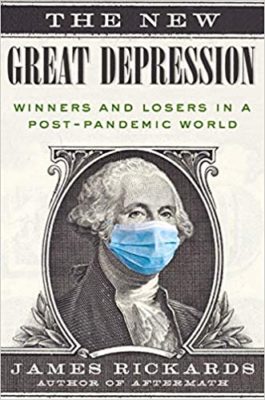
The New Great Depression: Winners and Losers in a Post-Pandemic World (James Rickards)
I found these books called the Way of the Warrior Kid that Jocko wrote to counter balance the Diary of a Wimpy Kid. There’s a story in one of the books where his uncle is this Navy SEAL and he’s this ten-year-old kid spending the summer with his Navy SEAL uncle. He has this threshold of pull-ups. He can only do three. His uncle has him get up to this pull-up bar and do 100, not all at once. He rests and the another, all the way until he gets 100 to get through that plateau. After a couple of days, he was able to do five, and then break through that plateau. The reason I bring that up is 2020, hopefully for most, it was breaking through that threshold because what’s to come as Rickards points out is the ripple effect.
The earthquake happened and now it’s wave after wave where you’re going to have some disruption in different sectors. It’s one of those changing and evolving environments, and how will you respond? Will you respond in that knee-jerk fear-based reaction of 2020? It was the case with most people because that fear went viral because it wasn’t a subtle change. It was a significant boom change. They went throughout the world. You look back on it and that was crazy, how governments responded, how people responded, how businesses responded. It’s a great case study of what’s to come. Hopefully, it’s prepared us to understand how the environment could change, and then subsequently how we operate within that environment.
I have to be careful when I say this. In this world you have to be careful with what you say. That’s probably a good thing because I wouldn’t want to say anything that hurts someone’s feelings or anything less. The first thing we’ll say is condolences to anyone who lost someone to Coronavirus, or who lost their job, or became in a rough economic situation because of this. Let’s say that right there. With that in mind and said, in a way, aside from those types of tragedies, 2020 is a gift. I’ll tell you why. It could have been so much worse. It’s not like a fire drill.
It gave us a glimpse of a few very important things that gives you a chance to be prepared. Let me maybe go further into that. When Coronavirus hit, I was like, “This is going to be devastating.” I remember you called me in March and you’re like, “Is this going to be your best year ever?” I’m like, what do you mean? You go, “Your business is built for this. You have telecommuters everywhere. You have systems set up on the web,” and it hit me between the eyes. I’m like, “How come I couldn’t feel like he does?” Everything you said was true. Here’s what’s interesting, we had more people interested in learning financial education than ever in the history of our business.
A lot of them were very honest about it like, “I feel like a Johnny come lately. I feel like this is something I knew I should have done. I knew I should have studied more. I knew I should have been more prepared. I knew I should have been smarter, but I’m here now.” That’s a great lesson for us to reflect on here is this could have been so much worse pandemic-wise. There could have been a lot like this black plague type stuff. There are worst viruses that could have hit us than this one. It’s going to give you a little bit of time, not much, to think about the economic. People go from social to primal quickly.
I remember I was sick in March 2020. I don’t know if I have Coronavirus or flu but I was sick so I didn’t go anywhere. When we finally went out and we went in the grocery store, we’re looking at these bare shelves. I was like, “This is surreal. This is like apocalyptic. This is nuts.” I never have understood the toilet paper thing. That’s still going on. You take that experience and you say, “This is what prime will begins to look like a little bit. It’s everyone for themselves.” You would never teach your son or daughter to go to a pizza party and grab as much piece for themselves as they could. You say, “You first, please.” The reality is that’s what happened in the grocery store. As you have an economic fallout, there’s a lot of lessons in preparing. How am I going to prepare for those types of grabs and those types of primal behaviors, stock markets, real estate markets and business markets. I think 2020 is a little bit of a gift that way in saying, “What can I do in 2021 when 2022 falls apart, if it does, if there is a new Great Depression as Rickards says?” It’s a gift. It’s a warning shot.
When we talked in March 2020, I think we did an episode shortly after that too. I started seeing a lot of volume of interest in investment. Specifically, Paul Tudor Jones, I heard him speak before. It was February of 2020. He’s one of the founders of Robin Hood and Robin Hood went berserk. There was almost a half a billion dollars in call options credited to the Robin Hood platform. Robin Hood’s average age is like 29, 30 years old as far as users. They rushed in because they saw opportunity, yet they missed a key point which was the education around it. Their education was Reddit.
It was Johnny come lately and it wasn’t just Robin Hood. Ameritrade, E-Trade, Schwab, all those guys had record quarters in terms of enrollments. The difference between those guys and Robin Hood. The average Robin Hood balance is probably $2,000. There were some bad stories and people. They were Johnny come lately to the market. They didn’t respect what investment is. It was more like a run on a casino.
Stimulus is not a nutrient; it’s a drug. Share on XThey got the first domino. They were aware and saw opportunity. The subsequent domino was down the path that seemed easy, not down the path that was less trodden.
What did you take away from Rickards’ interview? When you talk to him, what were some of the takeaways there?
It’s the disjointment. It’s where markets haven’t corrected much at all, the business world hasn’t corrected. What’s to come is essentially going to be the fallout. In the end, extending more toward the eviction moratoriums, you extend unemployment benefits, you provide stimulus. There was also a huge shift to online work, which was vital. The commercial real estate and retail, you look at lodging like my landlord, March and April 2020 was negotiation. We can whittle down this space and work this out, then they got the bailout, and they went to Costa Rica. I didn’t hear from him since.
It’s one of those where my lease is up, that’s why we’re moving the next couple of months. We’re not moving to their spaces. We’re not renegotiating. That’s the example where stimulus acted as a shortcut. It’s a Band-Aid. There are all forms of stimulus, yet when they stop receiving our rent, the other businesses are forced to like, “I don’t have stimulus. What am I going to do?” That’s when there starts to be the disjointment of resource allocation. There could be more money printing. That’s inevitable based on some of Biden’s plans. Who knows, but the piper has to be paid at some point in the future. That’s an artificial market in a sense. There’s always a day of reckoning.
I would agree that there’s what I would call a detachment from what we call fundamentals. When you detach from fundamentals, you’re in trouble. If you were a patient and you have a heart attack and your heart stops beating, that adrenaline shot, that epinephrin, those pads, those are stimulus, those are stimulants. They’re used when you’re dead. They’re not carbohydrates, fats or proteins that will keep that heart running well. They’re not nutrients. Stimulus is not a nutrient. It’s a drug.
When I look at the detachment from fundamentals, I’m completely blown away, especially in the stock market. You’d know more about real estate and I do, but the stock market is detached from fundamentals. What do I mean by that? Things being produced and consumed, value being given to people. There are some businesses that have done well and are thriving. Zoom has been hugely valuable to people. All the online stuff, that’s all great. There are also some fundamental things that are not being produced, that are not being expanded.
The entertainment industry, it’s rough when people don’t go to movies. You can only do so much Amazon, Google+, and Apple TV. The sports, you can still watch the NBA and NFL, those guys we’re pretty highly paid. When you look at ticket sales, revenues, hotdog, game ticketing schedule, and $40 are in your home arena and there’s no one there, this is billions of dollars. I agree with you that every time they do a stimulus, it’s another shocked up at the heart. After a while, the heart isn’t going to come back. It lives on nutrients, not paddles, epinephrin, and adrenaline. It lives on nutrition and we got to get to work where it gets going.
As part of this conversation, there are some fixed variables. There are lots of moving variables and even new variables that get introduced. It’s the element of human nature, and their drive to want to solve problems, and make things better. It’s that drive of the entrepreneur because you have a lot of stuff that’s going to come online that you may not have if it hadn’t been for COVID like new supply chain and technologies. There are tons of opportunities, but yet the point of this whole show, where there are tons of relevance to what Jim Rickards is alluding to is get the forecast right. One of his first rules of investing in how to beat the market is get the forecast. That’s where if you understand some of the fundamentals of the economy, you can look to what is most likely going to happen. It’s never going to be 100%, but getting to 80%, 90%, seeing how the environment is going to move, subsequently how you prepare yourself to act when it does or to act before it does.
The best way to prepare is to learn and to try to bring your behavior in line with what you’ve learned. Share on XThe challenge of fundamental forecasting is half of a forecast. We say this is going to happen. When’s it going to happen? Fundamentals will tell you what will eventually happen. You’ll know the future. You don’t know what the day of the week or the month a year is. It’s the timing. You and I went and saw The Big Short together. They made a forecast based on fundamentals, “We have all these toxic mortgages. We have all this debt that isn’t as good as the rating says it is.” They tried to time it. How many people timed it too early and got it wrong. How many people timed play it and got it wrong? Those guys look geniuses because they happen to have gotten the timing right. Was that because they were brilliant or because they were lucky?
There had to be super high level of negotiation at the end in order to get those contracts that pay out. It’s the decisions that have been made, whether it’s from an investment standpoint or a professional standpoint. The investments, the business decisions that are going to be made, assuming that the environment is going to go back to normal because we have a vaccine. People are in for a rude awakening. He illustrates that. That’s where I would say people want certainty. They want things to go back to normal. They want the variables to be fixed the way that they work because it was working based on what they wanted out of life, yet they didn’t see the structure of uncertainty and how the weight of that counterbalanced the certainty. Now it’s going to come back in multiple forms. Hopefully, people have gotten down the lesson that the environment is going to be evolving. There’s always going to be opportunity business-wise, investing-wise, and personally. It comes down to the awareness you have about the fundamentals, about also the changing fundamentals of an environment, and how you operate within it.
I would tell everyone, be careful with what your vision of back to normal looks like, be careful what you think that looks like. For most people it looks being able to go to a football game again, not having to wear a mask, and being able to go to the grocery store and have toilet paper on the shelves again. That’s what they think normal looks like. It’s almost a vision of the past, things are back the way they used to be. Things are normal and it’s back to how it used to be. When things are back to how they used to be, take a look at the financial statement in the United States. When Trump took office, we had a deficit of about $500 billion.
It’s $4.4 trillion, suddenly. That’s astounding to go from $500 billion deficit to $4 trillion. Our debt’s gone from $19 trillion to $27 trillion and the bonds we’ve issued. That’s not back to normal. That’s a new challenge for Janet Yellen, the Treasury Secretary, and for Jerome Powell, the United States, Europe, the Bank of Japan, and the Bank of China. The dollar is way different post pandemic than it is now. That’s why Bitcoin is so volatile. It’s not back to normal. If the dollar is normal Bitcoin, wouldn’t be doing this dance that it’s doing.
Money is flowing. It’s that whole Gresham’s Law where money floats around to the most certain areas. When there’s uncertainty, it flows out of what was certain before. That’s something that he talks extensively about in his book. There is a more and more of a push to Modern Monetary Theory based on some of the stimulus that has made itself, what’s going to be the response to when things go bad, print more money to stimulate. He says that it’s not stimulation. It does not stimulate. It’s going to do the opposite.
Did you read Stephanie Kelton’s book on that by chance?
He references that book though.
I read her book when it came out because I was curious to see how you argue that. The concentration about ideas in that book is astounding. That point and how they’re selling MMT is a little frightening that those ideas can keep you advanced as far as they are to the levels of politicians that it’s getting to. They have an unsolvable problem fiscally. This seems like a bit of a panacea for it, and it’s not. Like you say, it’s fundamentally flawed. Even if it works, the thing about MMT that is really important if that’s our future, and I agree with you. Your forecast, if you say MMTs are our future, you’re probably right with that forecast. What that means is whether it works, it’s almost scary if it works. Talk about the new normal, that changes our relationship with government tremendously because now the value of money is a function of the authority of the state to jail and penalize people, as opposed to a function of value in what we see as valuable in supply and demand.

The New Great Depression: When you detach from the fundamentals, you’re in trouble.
Modern Monetary Theory, if it goes forward and continues to go forward, will fundamentally change our relationship with our currency and our government where currency will no longer be about what we feel is valuable in terms of supply and demand. It will become valuable only and solely because of the state’s ability to punish its citizens for not coming in line. That takes away your independence and makes you extremely dependent on government.
It also weakens the human spirit. This is to balance out what happened. We had stimulus and people relied on stimulus checks. They got unemployment benefits, but if they hadn’t, what would they have learned in that process? That a huge opportunity cost there.
It’s funny, I was talking about this with some family members. There’s this idea that consumer prices look stable like a balloon, not inflating or deflating, stable prices. You got a hole that’s causing it to deflate. The technology is causing deflation and the velocity of money. I’ve talked a lot with Jim on the velocity of money issue when we had our talk, which is deflationary. You have a pump going into the balloon called the federal reserve with money creation that’s inflationary. The amount of inflationary pressure is in all time extreme. The amount of deflationary pressure is all time extreme. When I say all the time extreme, it’s the most money ever printed in the shortest amount of time and the lowest velocity of money we’ve seen since the ’60s.
Have these two extremes on the other side battling each other that makes it look like a stable price. If that hole gets a little bigger or that pump goes too far, you can pop it or deflate it back quick, it’s not as stable as people think it is. Learning how to deal with both, we have to be prepared for both the inflation and the deflation. There’s data that shows both of those exist, so prepare for both. It’s an arm wrestle. You don’t know who’s going to win, but they can arm wrestle in deadlock forever. One of them is going to push the other one over eventually because it’s all fake.
This is where hopefully, I wasn’t misunderstood when I was saying predicting environment or seeing what’s to come. It’s knowing that things are going to change and what causes those changes. It’s the ever-changing variable which is human nature, which is how we respond. People don’t know. You can assume, you can understand human behavior to a point where you can try to predict, but there’s always going to be new variables that people are always going to respond differently. It’s one of those understanding the different tenets of the environment in which you live, you operate your business, you invest, you were a professional and provide services to others, whether you’re an employee or own a business, it’s understand the environment, and then how you respond to it, and how to mitigate risk going into it.
You’re not betting on one outcome. You’re not betting on two outcomes. Maybe you have 3 or 4 ways in which you think things are going to pivot. You have backup plans and you can adequately preserve a couple of months without income, or you can preserve potentially your business and be more agile starting now. Hopefully, those are the lessons that people learned in 2020, so that when other events of similar magnitude happen, you’re in the position of responding quicker, and in order to improve your life, as opposed to how most people responded, which is either they let somebody else improve their life through their stimulus or extension of benefits or whatever temporarily or they relied on parents, neighbors or charity. There’s time and a place for all that stuff. At the same time, I don’t believe that creates the lesson that’s needed for somebody to grow. Hopefully those that had some pain grew from it, so that this next go around your muscles are stronger. You can do more pull-ups.
To get from where you are to where you want to be, you have to first identify where you want to be. Share on XI think we all have an education deficit where there’s a gap between what we know and what we’d like to know. There’s a degree of ignorance in all of us. What’s funny is the harder I pursue to close that deficit, the bigger the depths that becomes because you realize how much you don’t know. The more you study, the more you realize you don’t know. It’s almost like I chased to close the deficit it expands on me. That’s my thing for 2020 is people say, “I need a stock teacher.” I’m not a stock teacher. I’m a stock student, I’m trying to learn because my biggest fear is ignorance in this stuff. My biggest fear is not knowing stuff. You’re a lot better at it than I am. I think the time we spend studying guys like Jim and reading Stephanie Kelton’s stuff, whether we agree with or not, it helps you know what’s out there. The best way to prepare first is to learn, and then after you learn, you try to bring your behavior in line with what you’ve learned. That’s where you’re so good with your discipline. I couldn’t agree more.
I would say from a financial standpoint, I went into 2020 super prepared and good. I learned a lot of those lessons, 2008, 2009 by not being prepared, but getting into 2021, what I was surprised by myself is that I wasn’t prepared emotionally. I wasn’t prepared psychologically. I had all sorts of environmental variables that I needed in order to be happy, to feel successful, to be fulfilled, to be excited. A lot of those went away and I had to step back and think about the life I’m living, what I want, what I want for my family, and how I could essentially make an impact on others, which I believe that sense of contribution is built into us where we want to make a difference. It was several months lesson for me. I don’t know if I would have learned. Now I look at my experience with my kids where I don’t have to take them on vacation or go to this indoor skydiving. I have to do crazy things in order to enjoy them, enjoy their company, and be present with them.
It’s the same thing with Cynthia and same with friends and family. I don’t know if I would have got that lesson. It’s what allowed me to enjoy life more and not necessarily have attachments or things that have to happen in order to enjoy it. That’s another interesting thing that is going to happen in the future and partly, it’s accelerated by 2020 is people are figuring out how to be more efficient. Businesses are not going to go to the space they had before. People are not going to work the same way they worked before. They’re not going to go on vacation. They’re not going to entertain themselves the same way. Efficiency is a big thing and I think they’re realizing that they could be happier and be more successful fulfilled with less.
If you don’t know that’s coming, that enjoyment isn’t necessarily a function of having stuff or doing things, or achieving some professional level or money level, wealth level. It’s going to be another big lesson for people where the sustenance level could be zero or very minimal. Now people are going to find themselves saying, “I may only have to work ten hours a week.” A lot of people attach their meaning in life to their work and what they do on a daily basis. That is going to shift at a pretty rapid pace over the next decade. I’m not sure if people are prepared for that.
The simplification is an interesting thing. I had a friend of mine who spent a lot of time in the NBA as a basketball player. They’re pretty well paid. His nest egg is okay. He’s fine. He had a bigger house and he sold his house. He moved to a rural state and started a farm, and he’s ordered chickens and pigs. I’m like, “What do you know about that?” He goes, “I’m going to read about it.” His focus is simplification and narrowing down. It’s going to be fun to watch him because his happiness level is about health and family, and being closer to the land.
You’re right, I had the best year with my family I’ve ever had. It was awesome that way. I was frustrated though. I was scared for myself. I’m not a brave guy. I’d hate to come off that way. I wasn’t scared. I was bothered by my inability to help anybody. I saw people that were scared. I saw people are hurting, and other than teaching them how to trade through it, that was all I had to offer. I realize most people don’t even trade. Most people don’t have an interest in their 401k. Here I saw all these people getting annihilated in their markets and I was powerless to help. That was a good experience to look back on and say, “If this happens again, am I going to be able to help people, or am I going to be helpless to help them?”

The New Great Depression: Modern monetary theory takes away your independence and makes you extremely dependent on the government.
It’s one of those where you can help by giving a person money or the homeless, or you can help by donating to charity. You can help by supporting your favorite restaurant that was impacted by not having enough patronage. At the same time, it’s in your core competency. I read an article and Rickards is the one that spoke to this and turned me on to it. It hurts when one of the companies went bankrupt, and you had so much money go into that company at the bottom, even though they had filed bankruptcy. They had stock in bankruptcy and it totally screwed them. That’s the thing is how much wealth, how much money do people lose during that? It could have been prevented had they understood capital stack, the process of bankruptcy, and what they were doing, and why there wouldn’t be liquidity if they were able to come out of that.
There’s a lot of that to come. Nordstrom is in trouble because of the amount of money they borrowed to stay afloat. When you get into borrowing money to stay afloat, that’s not a sustainable business model, to continue to borrow, to continue to need stimulus. Neiman Marcus and there are so many retailers that couldn’t make it. Meanwhile, Amazon continues to be a behemoth that is unimaginable. Another one that’s interesting is Tesla, the PE on Tesla is $1,600.
That’s a big one in itself for the uninitiated. A PE is simply how much money you pay to get $1 out of a box that makes dollars. Picture Tesla as a box that makes dollars. When $1 comes out, how much did you pay in price to get that dollar? $1,600. You either believe you’re going to live for 1,600 years, get the money back, or you believe they’re going to have 1600% growth, which could happen. You could grow a company by 1,600. If you took Tesla’s PE and superimpose that on GM’s stock price. I don’t know how many thousands of dollars GM would be going for right now.
My point in saying that was what you were able to do, where it’s education. It’s like people want to take advantage of the volatility in the market and what’s happening with companies as they’re restructuring. They’re always looking for opportunity. At the same time, novices get her pigs get slaughtered. It happened quite a bit. Education is the key if you want to participate in that arena, especially in an arena as complex as options. That’s a big piece of what’s pushing market’s so high. It’s the amount of leverage that’s out there in derivatives.
Tell us a little bit about your business. We’ve talked about 2020, but 2021, what’s on your list? Where’s your focus? When you think of 2021 and what you’re going to get done or positions up to do, what’s on that list?
It’s all business at this point. What I focused on 2020 and still focusing on are two things. Number one, I realized that there’s so much efficiency in my business. Number two, I realized that people weren’t necessarily the solution to all of the inefficiencies. That’s where I adopted this slogan of, “Systematize the predictable so you can humanize the exceptional.” Where I looked at what makes the world go round from a human relationship standpoint is human connection, human relationship. That’s what is exceptional. There are a lot of technology and systems that are behind the surface that can make it so that there’s more of that. That’s where my big focus has been. It’s to take my technology game to a higher level. From a process standpoint, it’s pretty good, but we’re developing some technology right now that will essentially create better experience, more efficiency, and make things simpler.
Going back to a message to those that are listening to this. I’m not the only one, I’m not smart by any means. Companies are out there doing the exact same thing, but at a way bigger scale. That’s where the disjointment of resources is. Task oriented jobs are going to be a thing of the past. I believe that the skillset that is going to create infinite possibilities is the ability to connect with people, to speak to market, to write, to do things that invigorate the human spirit. You may think it’s even maybe a job that’s meaningless at a grocery store. There’s still so much value.
You go to a restaurant over and over again mostly because of the experience you have with people, not necessarily the food. If you think about it, that is going to be the commodity. The commodity of all commodities is the ability to connect and speak to people, to communicate a message, to sell to market. Those are skillsets that are humanizing the exceptional. A lot of my focus is to integrate a lot of the technologies that are out there that can make essentially what we do.
It’s ironic, technology to humanize. Technology should serve the human. That’s what it’s for and should do.
What are you working on?
I’ve been with the Donohoe’s more often in 2020, 2021. I don’t think Hawaii is going to happen yet for us. That trip with Hawaii with your family was insane. I want to do some more of that. I don’t want to live more, and a lot of personal goals that I have. I thought 2020 was a wake-up call for my health because I thought I can’t be heavier, and prediabetic and all this. That was a big one. A lot of personal things. From a business standpoint, the word I would describe my goals is selective growth. To be a little bit pickier about which type of student we will welcome, and yet grow in terms of language platforms. We serve the U S pretty well, but there are many people globally that we don’t serve, and technology can help us with the language barriers. We’re going to be more selective. Some people that are not fun to teach and not ready to teach, and not in the right mindset to teach. Temperament is a big deal to me and we have better students if they have a good temperament. We’re going to be more selective but yet still grow.
There are two sides to relationship. You got to have both sides in order for something to grow. Maybe we can end with something like this. You taught me something a couple of years ago that I had heard before. It’s a great common statement. Maybe you can break it open or unpack it for me. In order to get from where you are to where you want to be, number one, you have to identify where you want to be. That has to be defined. The gap that stands in the way is information or it’s motivation. There’s all the information for a person to do amazing things in life. It’s free and it’s there, but it comes down to the motivation to do it.

The New Great Depression: Systematize the predictable so you can humanize the exceptional.
Sometimes that’s built in. Sometimes it’s coached. Human behavior is so baked into who we are, our habits, the way we operate. It doesn’t change overnight. That’s something that’s profound when it comes to hiring employees, when it comes to bringing on clients, bringing on partners, bringing on contract groups. Those that help you do certain things. There are habits built into that are easily identifiable if you know what you’re looking for. In the end, that motivation, that mentality, that drive which creates that human connection dynamic, whether it’s business-wise, friendships, business-client relationships. It makes a huge difference because if it’s not there, the cost is not worth it. It’s way too extreme.
It always seems to come down to some personal development, and keep on evolving and developing every single year, learning from what the history was and putting in the next.
We’ll end with that. This is Jim’s book. I didn’t have it when I interviewed him. He talks about the environment being in the new Great Depression, but he had some optimistic things to say. In the end, that’s the environment that doesn’t have to be your life.
Thank you so much, Patrick.
Same with you, Andy. Thank you for your time.
Important Links:
- Andy@AndyTanner.com
- TheCashFlowAcademy.com
- The New Great Depression
- BradSumrok.com
- Brad Sumrok’s Apartment Investor Mastery – Facebook
- The Wealth Standard – Facebook
- Instagram – Paradigm Life
- Way of the Warrior Kid
- Diary of a Wimpy Kid
About Andy Tanner
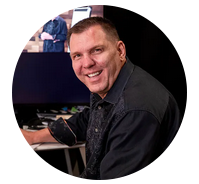
With a long time passion for Teaching, Investing, Entrepreneurship, and Self Development, Andy has devoted his career to training and inspiring motivated people all over the world.
Andy’s passion for helping investors and entrepreneurs shows through in everything he does: The Cash Flow Academy Show podcast, regular investing update videos and commentary, interviews with top experts, and focused training programs. The goal with The Cash Flow Academy is to make everything fun, simple, and real.
Love the show? Subscribe, rate, review, and share!

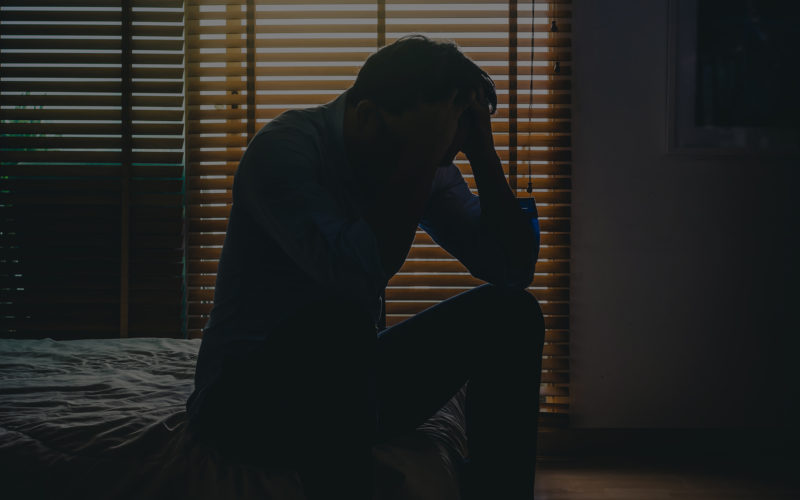
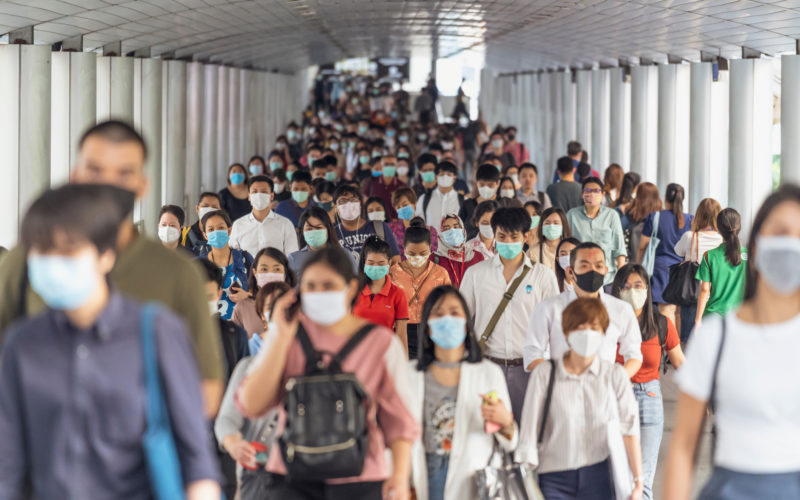
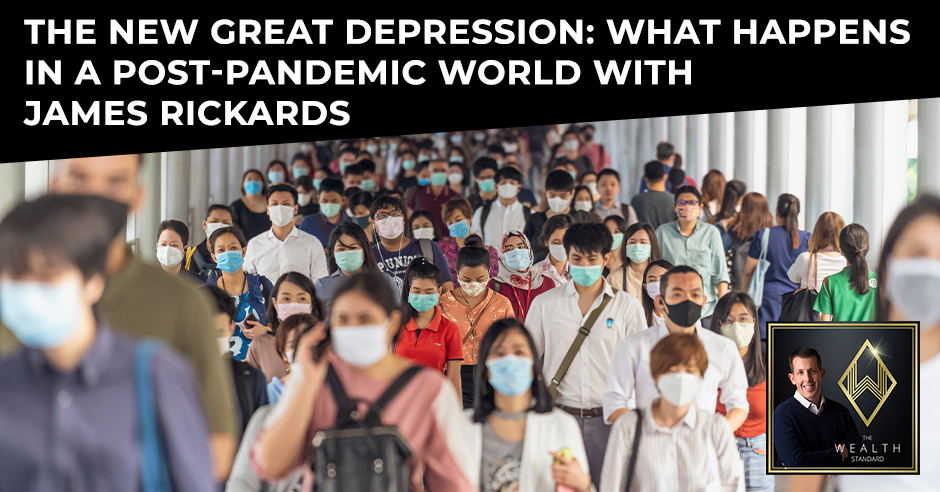
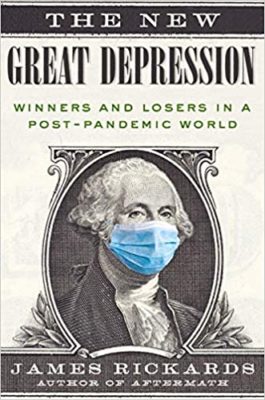

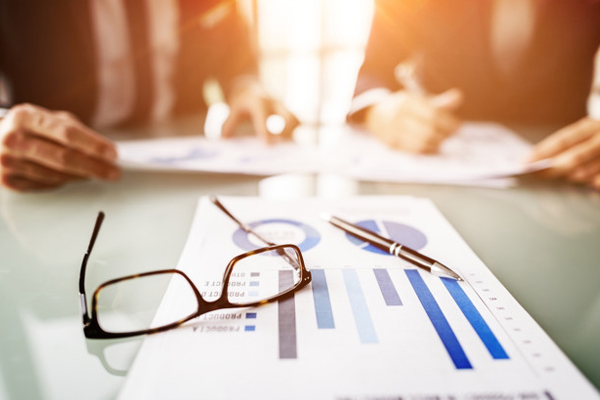
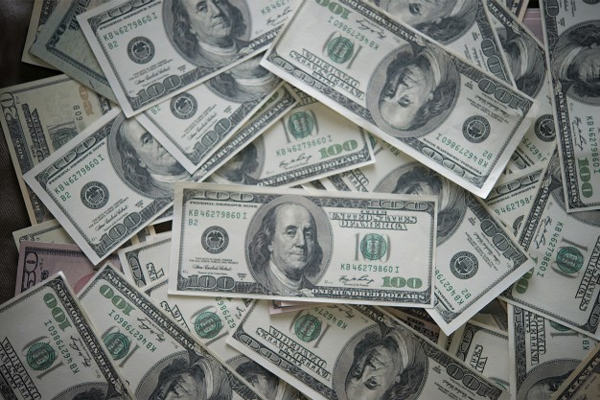
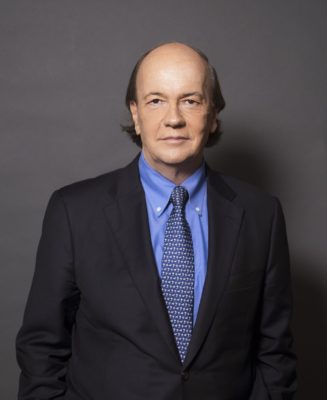 Jim Rickards is Editor of the Strategic Intelligence newsletter, bestselling author of Aftermath: Seven Secrets of Wealth Preservation in the Coming Chaos, Currency Wars: The Making of the Next Global Crisis, The Death of Money: The Coming Collapse of the International Monetary System, The New Case for Gold, The Road to Ruin: The Global Elites’ Secret Plan for the Next Financial Crisis, and the new books The New Great Depression: Winners and Losers in a Post-Pandemic World and The Ravens: How to prepare for and profit from the turbulent times ahead, which was co-authored with Robert Kiyosaki.
Jim Rickards is Editor of the Strategic Intelligence newsletter, bestselling author of Aftermath: Seven Secrets of Wealth Preservation in the Coming Chaos, Currency Wars: The Making of the Next Global Crisis, The Death of Money: The Coming Collapse of the International Monetary System, The New Case for Gold, The Road to Ruin: The Global Elites’ Secret Plan for the Next Financial Crisis, and the new books The New Great Depression: Winners and Losers in a Post-Pandemic World and The Ravens: How to prepare for and profit from the turbulent times ahead, which was co-authored with Robert Kiyosaki.













